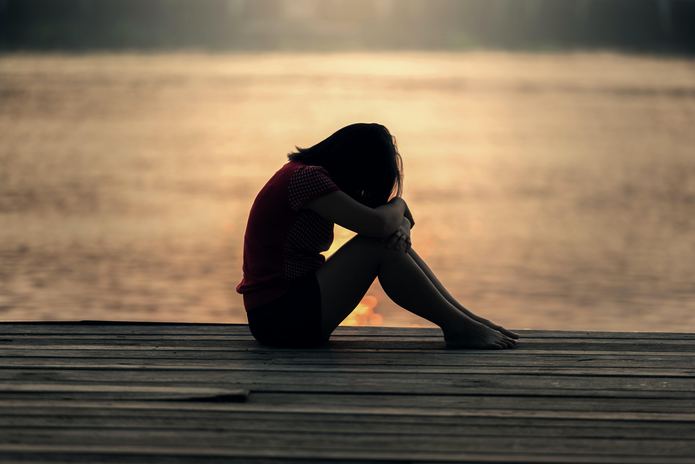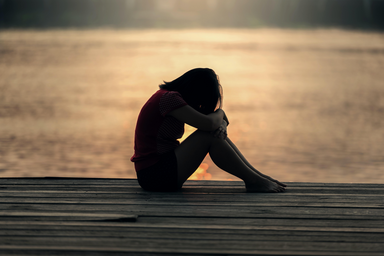I think it goes without saying that loss is hard, and trying to process it while you’re away at college—and in the middle of a global pandemic—is a feat that seems near impossible.
Trust me, I know.
The same day that my mom dropped me off at college for the start of the spring semester, I got a phone call that my grandpa had passed away. At that point, none of my roommates were back, and only one of my friends had arrived. As a result, I spent most of the day alone, crying in my bed while listening to my sad playlist.
And that wasn’t even the worst part.
Three days later, one day before the first day of the spring semester, I got another phone call that my aunt—and godmother—had passed away. I was in utter shock, unable to comprehend the double whammy of losing two people three days apart. I couldn’t find the will to get out of bed, eat, or shower. I stared out the window from sunup to sundown, hopeful that looking into the horizon long enough would somehow change reality. I wanted nothing more than to go home, hug my cat, and be with my family, but because of COVID-19, I had to settle for live streaming the funerals on YouTube in between classes, 1,000 miles away.
And that was the worst part.
For an entire month, I was afraid of phone calls. Anytime I saw a phone call from any person in my family, my heart rate would go up and I would stiffen a bit. I was plagued by a fear of unexpected car crashes, heart attacks, or freak accidents that would take more people away from me with no warning. Yet, in the time that has passed since that fateful weekend, I’ve come to terms with my grief. So, as someone who is (sadly) experienced in this area, here are five tips on how to find peace in mourning.
1. Let yourself feel. As obvious as this sounds, it’s woefully underdone. Keep in mind that it’s OK to lie in bed, go through several tissue boxes, and listen to your sad playlist. It’s OK to take a mental health day from class, so long as you send your professors an email in advance (trust me, they’ll be very understanding and accommodating). It’s OK to want to be alone. Remember that letting yourself feel is the first step in processing loss.
2. Go home. My family is my rock, and when I lose a loved one, being with my family is not only comforting but also therapeutic. If making the trip isn’t a possibility, though—as was the case for me and for many others due to COVID-19—then make sure you stay in close contact with your family. Call everyday. Send a text on the family group chat. Schedule a weekend when you can plan on going home. Remember that you aren’t grieving alone.
3. Surround yourself with friends. My friends are probably the only reason I’ve been able to get through this whirlwind of events. When I found out about my aunt’s passing, my two best friends sat silently on the other side of the room, only leaving the dorm once to go pick up food for me. Knowing that someone close to you is there—if and when you need them—is beyond reassuring, and they make sure you’re well taken care of when you might forget to do so yourself. Remember that you aren’t facing grief alone.
4. Stay on top of school. As much as you want to close your blinds, shut your door, and lock out the world, you can’t let grief get in the way of the rest of your life. Make sure to stay in close contact with your professors; they’re another invaluable source of support during these times, so send them an email, pop in to their office hours, and tell them about your situation. Then, after you take your mental health day, continue to hold yourself accountable. Go to your classes, do your homework, and study for your tests. Force yourself to carry on. As hard as it seems in the moment, you’ll be glad in the long run that you didn’t let yourself slip. Remember that succeeding is a way of paying tribute to whoever you’ve lost.
Ultimately, grief might never go away entirely. Don’t expect to stop missing someone or to fill the void that they left behind. Do, however, understand that at some point, you will be OK. You will learn to live without them—and, hopefully, to live for them. You will be able to remember them, look at old pictures, and think about them without your eyes welling up with tears. You will find peace in mourning.
And life will go on.


